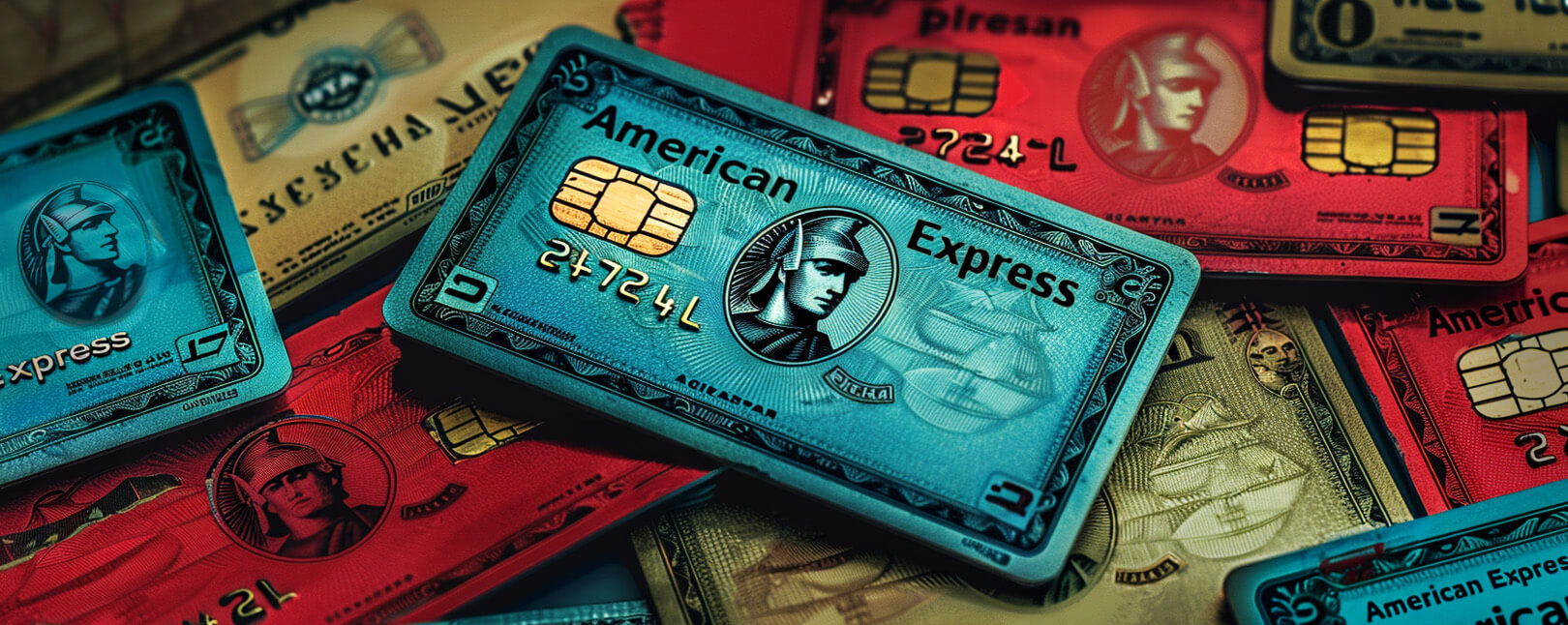Cruise Chargebacks: A Growing Threat, but Cruise Lines Are Not Defenseless
The covid-19 pandemic devastated the cruise industry. The three largest operators — Carnival, Royal Caribbean, and Norwegian Cruise Lines — each saw a year-over-year fall in revenue of more than 70%.
Cruise ships were docked for months, but even after reopening, many would-be travelers chose to stay on land. Cruise ships are enclosed spaces full of people; exactly the kind of space that people were advised to avoid, at the height of the covid outbreak. In response, thousands of consumers requested refunds for trips for which they had already paid.
Cash-strapped cruise lines couldn’t always keep up with refund demands. That led to a huge jump in customers filing chargebacks, or forced payment reversals resulting from a customer dispute.
It’s unfortunate, but understandable why the number of chargebacks filed against cruise lines surged in 2020. However, it stands to reason that the number of cruise chargebacks being filed should be dropping now that things are getting back to normal… right?
Unfortunately, as we’ll see below, that’s not necessarily the case.
Recommended reading
- Bank of America Disputes: Here's What You Need to Know
- Wells Fargo Disputes: Chargeback Rules & Things to Know
- 10 Tips to Stop DoorDash Chargebacks Before They Happen
- American Express Chargebacks: Rules & Time Limits & More
- Stripe Chargeback Guide: Time Limits & Other Info You Need
- What is a Bank Chargeback? What Makes Them Different?
Cruise Line Chargebacks: At a Glance
According to one report, the cruise market is set to top $25 billion by the end of 2023, a nearly 40% increase over 2022. At the same time, cruise lines deal with a lot of unique challenges that make them susceptible to chargebacks:
- High ticket/transaction value: Fraudsters love big-value items, which can offer the most profit for the least amount of work.
- Advance scheduling/purchase: Long lead times mean a traveler’s situation may change between booking and setting sail, leading them to file disputes.
- High amount of online sales/reservations: While many cruise packages are purchased in person, a significant portion are purchased digitally, creating potential for online fraud.
- Natural disasters: Hurricanes or other “acts of god” could disrupt cashflow for indefinite periods. If cruise lines can’t provide refunds, cardholders will turn to chargebacks.
- Cancellation risk: Cash flow could change based on allowed cancellations. Also, travelers may use disputes in an attempt to force unwarranted cancellation refunds.
These and other factors are recognized as common industry circumstances that could increase chargeback risk. But cruise lines must also deal with the growing threat of illegitimate chargebacks from their own customers. Travelers who feel a mistake has been made on their bill could dispute the charges. If plans change, or the consumer is somehow displeased with the cruise, they may try to circumvent standard refund policies by calling their bank directly.
Why Do Cruise Chargebacks Happen?
While surprisingly rare, there are valid circumstances in which a cardholder might legitimately dispute a cruise package purchase. For example, if the cabin differed greatly from what the buyer paid for, a chargeback may be appropriate. Even then, cardholders have a responsibility to call the vendor and attempt to resolve the issue before they call the bank.
Then there’s criminal fraud. A crook may purchase a package using stolen credit card information, then try to resell the tickets to an unsuspecting buyer. When the authorized cardholders learn of this, they promptly call their issuer to file a chargeback. The vendor ends up having to refund the fraudulent sale price, plus pay a chargeback fee. Whoever bought the tickets from the fraudster would not be able to use them. The cruise line may be able to resell the space, but otherwise, they’ll lose the potential income from that cabin.
Fraudsters often wait until near the departure date to make bogus purchases, leaving less time for the scam to be discovered. It also gives the scammer a better sales pitch: “I bought this cruise package, but now I can’t go, so I’ll sell them to you at a loss.” As a bonus, it puts pressure on the victim to make the purchase quickly, often without thinking things through.
As we mentioned, there are also first-party threats to consider. Vacation packages are typically paid for well ahead of time, but that means travelers’ situations can change before the sailing date. There are numerous reasons a person might not be able to take the trip. For example:
- Injury or illness
- Hurricane or other natural disaster
- Required court appearance
- Military redeployment
- Loss or theft of passport or visa prior to the trip
In many instances, these claims could be made by honest customers that don’t understand what they’re doing. Depending on the cruise line, the situation might qualify for a refund or credit voucher. But if the traveler feels they could get a better result with a chargeback, they may try to go that route and work directly through the bank.
Of course, some customers will file disputes without valid cause. The traveler may request a refund for reasons the cruise company deems unacceptable, including:
- Missing the (on-time) departure
- Experiencing a minor illness, or illness due to a pre-existing condition
- Something came up at work that requires their presence
- They simply changed their mind
- They were not happy with some aspect of the cruise
- They’re trying to get something for free
Typically, none of these situations would warrant a refund. But again, if the cruise company won’t (or can’t) issue a refund, the traveler moves on to the bank. Of course, none of these circumstances should warrant a chargeback, either. The cardholder must misrepresent the situation, usually by claiming the purchase was fraudulent.
How Do Chargebacks Impact the Cruise Industry?
If you sell cruise vacation packages — either as a cruise line, OTA, or independent agent — chargebacks can deeply disrupt your daily operations. Each dispute translates to revenue loss and additional administrative expenses. This, in turn, results in increased costs and future complications.
The good news is that you may be able to challenge the customer’s claim through representment. Even if you win a reversal, however, you will still be assessed the chargeback fee and take a hit to their chargeback ratio. This will lead to increased costs and more complications in the future.

The cruise lines themselves take the heaviest hits, but these disputes hurt the industry as a whole. The more chargebacks that are filed, the more risky it seems to process credit cards for the lines at all. That can directly lead to:
Learn more about chargeback costsOverall, chargebacks have far-reaching impacts. They affect your reputation, customer relationships, operational efficiency, and compliance standing.
How to Prevent Cruise Chargebacks
Successful chargeback prevention must be proactive, involving upgraded communication and customer service measures coupled with effective dispute resolution when necessary. This demands a customer-centric approach focused on transparency and satisfaction.
To that end, here are ten chargeback prevention best practices that we recommend to decrease your overall chargeback issuances:
#1 | Communicate Clearly
Ensure that all terms, requirements, and other crucial information is clearly communicated to customers. It is crucial to use plain language and avoid industry jargon that may confuse or mislead customers. Providing comprehensive documentation and offering opportunities for customers to ask questions can enhance their understanding and reduce the likelihood of chargebacks resulting from a misunderstanding.
#2 | Educate Customers
Educating customers is essential. You should offer resources, such as user-friendly guides, online portals, dedicated customer support, etc., to help customers. Regular communication, reminders, and updates about any changes to service or upcoming renewal dates can also minimize confusion and prevent disputes.
#3 | Clarify Billing Practices
Accurate billing practices are critical to prevent billing disputes and chargebacks. You should ensure that invoices and statements are error-free, clearly indicating the services provided, associated costs, and any adjustments or refunds. Billing transparency and easy-to-understand itemization can help customers recognize and validate charges, reducing the chances of chargebacks.
#4 | Provide Training
Conducting comprehensive training for sales representatives who engage with customers is crucial. This training should emphasize accurate representation of terms, and ensure that sales agents have a thorough understanding of the products and can effectively communicate them to potential customers.
#5 | Prioritize Customers
Maintaining strong customer service is vital for addressing customer concerns and resolving issues promptly. By offering accessible channels of communication, such as phone, email, or live chat, you can proactively assist customers, clarify uncertainties, and address complaints before they escalate to chargebacks. Timely and empathetic customer support can go a long way in preventing disputes.
#6 | Ensure Compliance
Staying up-to-date with industry regulations and adhering to best practices for data security and privacy can minimize potential compliance issues. Complying with regulatory requirements can reduce the risk of penalties, legal disputes, and subsequent chargebacks.
#7 | Automate Reminders
Using automated payment reminders can help customers stay informed about upcoming due dates and avoid missed payments. Sending timely notifications through email, text messages, or mobile apps can prevent accidental lapses in service.
#8 | Improve Documentation
You should ensure that any policy documentation is comprehensive, easily accessible, and written in customer-friendly language. Clear and detailed terms, service limitations, exclusions, and procedures can minimize misunderstandings and disputes.
#9 | Enhance Verification
Implementing thorough verification processes during a transaction can help confirm your customers’ identities, intentions, and understanding of the service. This can include additional authentication measures or validation checks to mitigate instances of fraudulent or unauthorized transactions.
#10 | Seek Feedback
Regularly seeking customer feedback through surveys, satisfaction ratings, or online reviews can provide valuable insights into which improvement may be necessary. Addressing customer concerns promptly can help prevent frustrations from escalating into chargebacks and demonstrate a commitment to customer satisfaction.
Learn more about chargeback preventionChargebacks Require a Better Solution
Any combination of the best practices outlined above can help you create a solid framework to minimize chargebacks. You can also enhance customer satisfaction and ensure a smooth and secure booking experience for customers at the same time.
All that said, a piecemeal strategy won’t be effective. Successful fraud prevention and risk mitigation requires a more comprehensive approach. Fortunately, we can help.
Chargebacks911® offers a true end-to-end technology platform that prevents more disputes, wins more reversals, and maximizes your ROI. Contact us today for more information on how to improve customer service to prevent chargebacks.
FAQs
What is a cruise chargeback?
A cruise line chargeback is an attempt by a traveler to obtain a payment reversal (in whole or in part) for the cost of a cruise. There are two cases where this option may be justifiable: the traveler feels they were defrauded by the seller, or a non-traveler had a cruise package purchased with their stolen card information.
Are travelers entitled to a refund if they can no longer go on the cruise?
That depends on the reason and the cruise line’s policies. Travelers may be able to get a full or partial refund under certain conditions, but it’s important to carefully read all terms and conditions prior to signing up. Cancelation insurance may also be available, but it’s usually not comprehensive. Again, travelers must read and understand what it covers.
How does “friendly fraud” occur in the cruise industry?
Post-transaction (friendly) fraud describes situations in which a traveler attempts to force an unwarranted refund through the bank, typically by claiming the transaction was fraudulent.
If a traveler wins a dispute with the cruise line, is the matter considered settled?
Not at all. First, the company could contest the chargeback and possibly have the chargeback refund reversed. If that doesn’t work, the cruise line has the option of turning the case over to a collection agency, or even taking the traveler to court for breach of contract. At that point, it is up to the judge to decide whether the refund was warranted.













